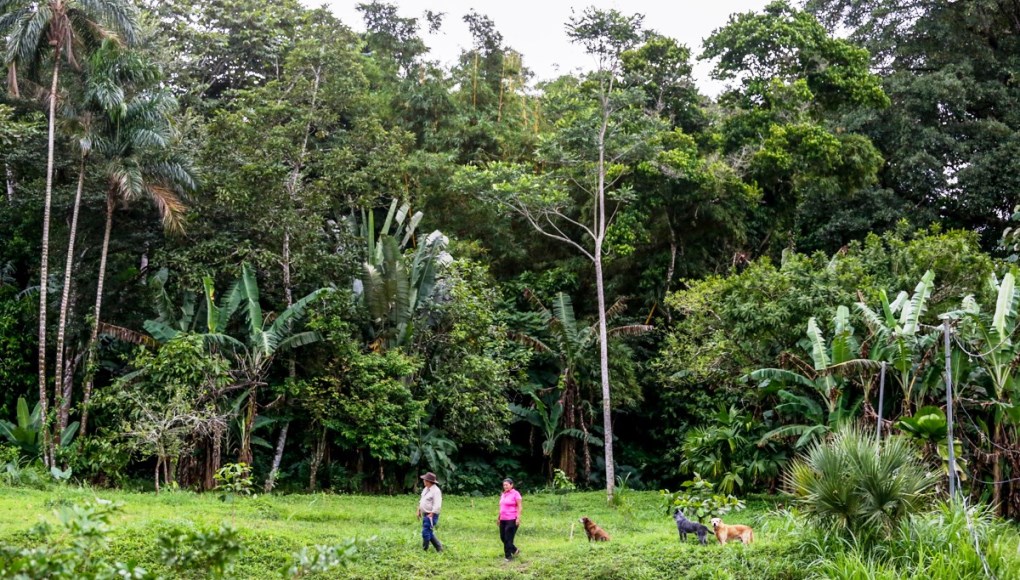More and healthier forests are critical to addressing the climate emergency. If deforestation is stopped and degraded forests are restored, they can provide around a third of the carbon reduction needed to avoid the most severe impacts of climate change.
As an accredited entity to the Green Climate Fund, the United Nations Development Programme (UNDP) has an emerging portfolio of $320 million (USD) related to reducing emissions from deforestation and forest degradation, conservation, sustainable management of forests, and enhancement of forest carbon stocks (REDD+). A third of this portfolio is dedicated to payments for ecosystem services and community forest management.
Payments for ecosystem services reward individuals or communities for undertaking actions that increase water purification, flood mitigation, or carbon sequestration. Payments can be an important mechanism to transfer needed cash resources directly to impoverished groups. In addition to being widely used to cushion the economic damage from sudden shocks such as the COVID-19 pandemic, cash transfers have long been recognized as an effective tool for reducing poverty, yielding benefits to health, education, employment and overall wellbeing.
In the context of the creating a greener, more equitable and inclusive future, beyond COVID-19, cash transfers offer three important forms of relief; a rapid and cost-effective way to provide basic needs; a means to recover and invest after the crisis; and protection from future shocks. Cash transfers accomplish all of this while giving individuals the autonomy to manage their own expenses and stimulate local economies.
Payments for ecosystem services are unlike any other cash transfer program because they are conditional upon performance—participants must achieve certain outcomes by doing (or refraining from doing) certain activities.
In the COVID-19 economic recovery phase, these schemes must be carefully targeted to achieve environmental and social outcomes, considering the goals of the program as well as synergies and trade-offs with other goals, programs, and sectors.
UNDP and the Green Climate Fund are supporting such efforts in four countries:
- Ecuador’s Socio Bosque Programme provides financial incentives to individual and community landowners who voluntarily commit to conserve native forests for a 20-year period. The GCF supports the Socio-Bosque Programme through the Priming Financial and Land-Use Planning Instruments to Reduce Emissions from Deforestation project, a $41 million grant to support the implementation of Ecuador’s REDD+ Action Plan. As of June 2020, the GCF funding has allowed Socio-Bosque to add 259,000 hectares into the program, benefiting 175,000 people, the majority of whom are indigenous Amazonians.
- Brazil’s Floresta+ is a new and innovative program that provides incentives for environmental services to family farmers, traditional communities, and indigenous peoples in the Amazon region. The pilot phase is being funded by the first results-based payment proposal approved by the Green Climate Fund Board in February 2019 for US$96 million. US$80 million from payment for REDD+ results achieved by Brazil in the Amazon biome in 2014 and 2015 are committed in support of the Floresta+ initiative.
- Indonesia’s Social Forestry Program aims to alleviate poverty, halt deforestation, and end forestland conflicts by giving local communities the opportunity to manage forests themselves, and to develop sustainable livelihoods. The Social Forestry Programme is supported with a US$ 46 million REDD+ results-based payment from the GCF for the emission reductions achieved by Indonesia from 2014 to 2016. It is expected that an estimated 200,000 households will benefit from the project’s support to the Social Forestry Programme. More than 74 percent of Indonesia’s poor depend on ecosystems for their livelihoods. Depletion of these services would have a drastic impact on the livelihoods of the poor, while widening inequality.
- Costa Rica’s Payment for Environmental Services Programme, first established in 1995—and documented in the classic 2002 book, The Restoration Economy—is a system of voluntary contracts through which a well-defined land-use practice likely to secure an environmental service is paid for if, and only if, the participants conduct the agreed sustainable land-use practice.
Roughly 90 percent of Costa Rica’s recently approved US$54 million GCF REDD+ results-based payment for emission reductions achieved in 2014 and 2015 will be applied to Costa Rica’s programme benefiting, in particular, women and indigenous peoples. Over the last five years the programme has been fully funded by the national carbon tax and water fee but, in the economic downturn, the GCF funding is essential to consolidate the gains of the last 25 years and sustain the transfer of needed cash resources directly to impoverished groups in the COVID-19 recovery phase.
UNDP’s Climate & Forests Programme supports many more countries in their efforts to secure financing for the implementation of their REDD+ strategies through the negotiation and design of large-scale investment projects and results-based payments. The main sources of funding are the Green Climate Fund, bilateral agreements on REDD+ and, in the near future, carbon markets.
When promoting regenerative climate and forest policies and rural economic revitalization investments in countries, now more than ever, we need to ensure an equitable and inclusive approach with social protection considerations at its core.
Photo of restored watershed in Costa Rica courtesy of UNDP/Priscilla Mora Flores.

